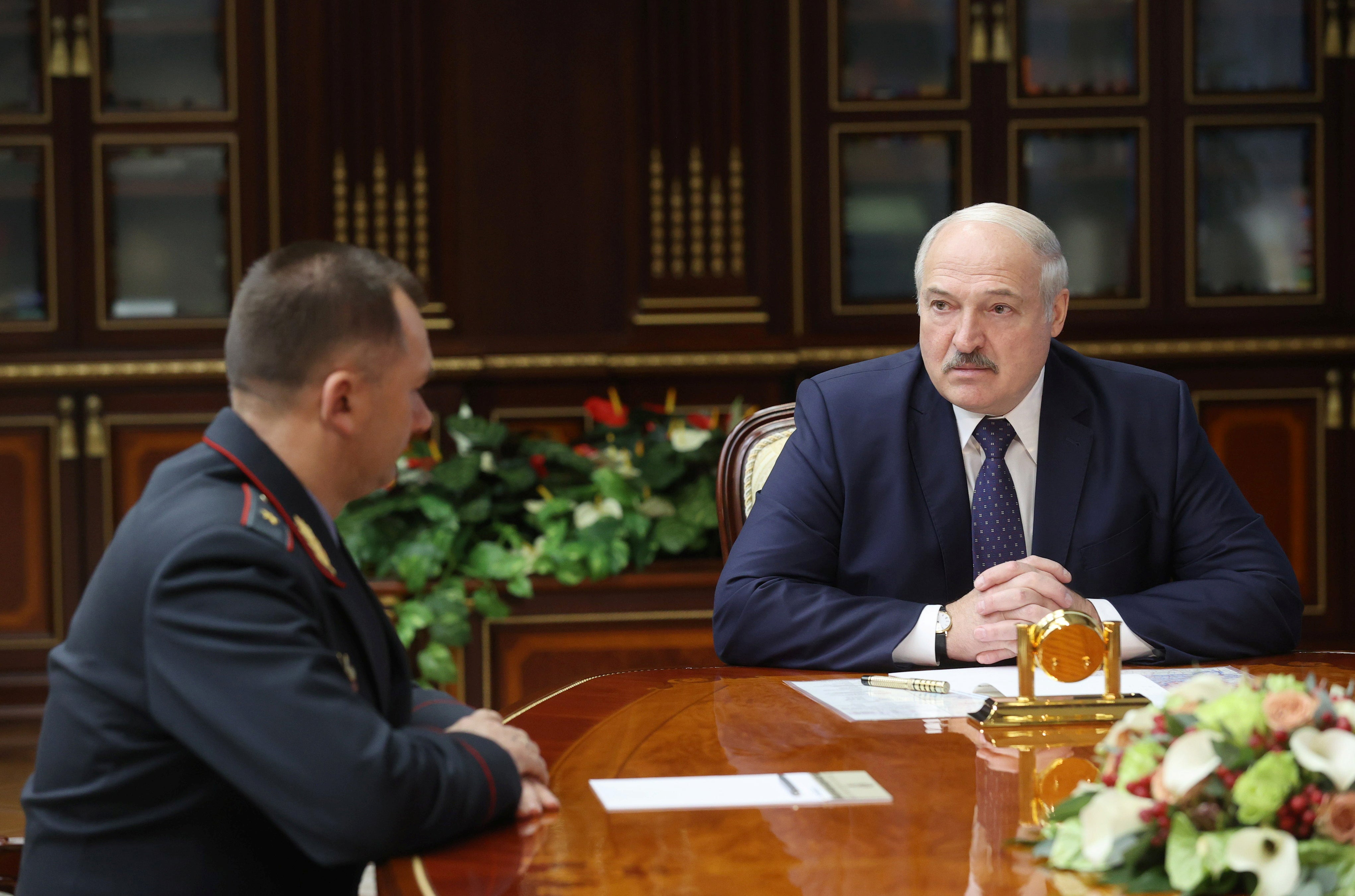Belarus protests: Lukashenko fires police chief in surprise shake-up of top team
Police chief said ‘nothing wrong’ with officers using lethal force against protesters

Your support helps us to tell the story
From reproductive rights to climate change to Big Tech, The Independent is on the ground when the story is developing. Whether it's investigating the financials of Elon Musk's pro-Trump PAC or producing our latest documentary, 'The A Word', which shines a light on the American women fighting for reproductive rights, we know how important it is to parse out the facts from the messaging.
At such a critical moment in US history, we need reporters on the ground. Your donation allows us to keep sending journalists to speak to both sides of the story.
The Independent is trusted by Americans across the entire political spectrum. And unlike many other quality news outlets, we choose not to lock Americans out of our reporting and analysis with paywalls. We believe quality journalism should be available to everyone, paid for by those who can afford it.
Your support makes all the difference.Belarus’s volatile autocrat Alexander Lukashenko took another turn for the unpredictable on Thursday by firing his controversial police chief.
Yury Karayev led Belarus’s interior ministry throughout the three-month, bloody post-election crackdown. Earlier this week, he likened the confrontation to a “war”, and claimed there was “nothing wrong” with police using firearms against demonstrators.
“If someone attacks a police officer he will be stopped using all available arsenal,” he said. “I tell every district policeman that his life and the happiness of his family depends on how quickly he draws his weapon.”
Russian-born Mr Karayev, 54, rose through the ranks of special forces to become Mr Lukashenko’s handpicked choice to become minister in 2019. Early on in his tenure, he said he intended to rid the police of its "punitive" image with reforms and new performance targets. But the behaviour of the forces under his control in the immediate aftermath of the disputed August election told a different story.
During the terrifying crackdown, thousands of peaceful demonstrators and journalists were arrested, hundreds were tortured, and at least five people killed.
Mr Karayev made logic-bending statements to justify the extreme violence. Police officers may have accidentally hurt citizens caught up in exchanges with criminals, he suggested.
The minister became one of 40 officials to be included in EU sanctions lists in October for his participation in a “campaign of repression and intimidation … illegal arrests … and torture.”
Struggling to stamp out an opposition strike that began on Monday, Mr Lukashenko may have been motivated to act over criticism of his controversial minister. It could also indicate divisions within the ruling elite. Mr Karayev earlier suggested firing him would “demoralise” the police forces that have stayed loyal to the 26-year ruler.
The change is unlikely to lead to more consensual policing. Shortly after official social media channels broke Mr Karayev’s departure, it was revealed his replacement would be Ivan Kubrakov, the hardline head of Minsk police. On October 16, Mr Kubrakov was the first senior officer to threaten to use firearms on protesters.
Mr Lukashenko also said the outgoing interior minister would be one of two regime hardmen sent to the western regions of Hrodna and Brest, strike strongholds considered most problematic for the regime.
Explaining the changes of his top security team in a televised meeting, Mr Lukashenko said he was sending trusted lieutenants west to concentrate on the “most dangerous districts… of the country”.
“Why you? You are military men, knowledgeable, you do not need to be told what to do," he said.



Join our commenting forum
Join thought-provoking conversations, follow other Independent readers and see their replies
Comments